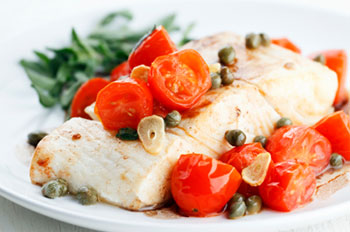More Articles on A Healthy Pregnancy
Thinking About Getting Pregnant?
Congratulations on Your Pregnancy! (for
those who are newly pregnant)
What is a healthy pregnancy weight gain?
Can I continue to eat a vegetarian diet
during pregnancy?
A Pregnancy Menu For You and Your Baby
Treating Nausea and Vomiting
What About Seafood?
Don't Eat That!
Pregnancy and Cholesterol
Wash Those Veggies!
Breastmilk, the Healthiest Diet for Babies
What DOES that Broccoli Do for My Baby?
Vitamin D Supplements in Pregnancy and
Breastfeeding
New Research Affirms Individualized
Vitamin D Supplementation for Pregnant Women
Breastfeeding: Developing a
Future Gourmet
What to Do About The Flu
Gestational Diabetes
Decreasing the Risk of Gestation Diabetes
Keeping and Storing Breastmilk
Pregnancy Weight Gain Guidelines – Do
We Need New Ones?
Breastfeeding: A Woman's Health
Issue
Eating During Labor
Probiotics and a Decreased Risk of
Gestational Diabetes
Pregnancy - a Time to be Active!
Clearing the Air : Quit Smoking for
You and Your Child
What is a Healthy Pregnancy Diet for
Obese Women?
Does Iron Intake Matter?
One Fish, Two Fish... Full Term Birth?
Folic acid in pregnancy and language development
A Mediterranean Diet, Pre-Pregnancy
There is No Substitute for a Healthy Diet
Honest
Healthy Diets for Babies
Exercise for New Moms
A Healthy Pre-Pregnancy Diet
and Gestational Diabetes
Vitamin D and Gestational Diabetes
Great News About Breastfeeding
Peanuts and Pregnancy
Fried Foods and Gestational Diabetes
Iodine supplements - should you take them?
Prevent Gestational Diabetes with a Mediterranean-style diet
FDA Updates Recommendations for Fish Consumption in Pregnancy
Faith Bontrager, RN, BSN
 Faith's
passion in nursing is to help people find the options they need to discover
their personal path to optimum health. Ask her friends and they will
tell you that their appreciation of nutritious food has grown through Faith. About
Faith Bontrager, RN, BSN
Faith's
passion in nursing is to help people find the options they need to discover
their personal path to optimum health. Ask her friends and they will
tell you that their appreciation of nutritious food has grown through Faith. About
Faith Bontrager, RN, BSN
A Healthy Pregnancy
Iodine supplements - should you take them?

You may have seen on the news recently that the Council for Responsible Nutrition has recommended that all pregnant and breastfeeding women take a supplement that includes 150 micrograms of iodine daily. They further encouraged supplement manufacturers to include this amount of iodine in any supplements designed for pregnant or breastfeeding women.
The Council for Responsible Nutrition is a trade organization for the supplement industry. Is this simply a matter of a group marketing supplements or does it reflect a potentially serious health issue?
The answer is not quite as easy as it may seem.
About Iodine
Iodine comes from the foods we eat. It is an essential part of thyroid hormones. Thyroid hormones control many body functions, including metabolism, body temperature regulation, reproduction, growth, and other important body functions. If you do not have adequate iodine, you will not have adequate thyroid hormone.
Adequate iodine is important during pregnancy and breastfeeding. Severe deficiencies have been associated with miscarriages, stillbirth, pre-term delivery, permanent brain damage and growth retardation. (www.thyroid.org).
For many years the best source of iodine for many Americans was iodized salt. The amount of iodine in salt varies but is about 142 micrograms in 1/2 tsp. However, many of our readers have stopped using table salt, use it sparingly, or may use sea salt which often is not supplemented with iodine.
Seafood is an excellent source of iodine. Saltwater fish has iodine and is also a good source of Omega-3 fats. Limit fish that is high in mercury and do not eat raw fish during pregnancy. (See: What about seafood?)
Sea vegetables (seaweed, algae, kelp, nori, dulse) vary significantly in the amount of iodine they contain. Some have very little iodine and others are extremely high in iodine and should be limited. Investigate the products that you use.
Fruits and vegetables have some iodine, but the levels vary based on the level of iodine in the soil where they were grown.
There are no tests to determine the amount of iodine in the body.
Should you take an iodine supplement?
Pro
-
Iodine needs are higher in pregnancy. The RDA for a non-pregnant adult is 150 micrograms, while RDAs are 220 micrograms iodine per day for pregnant women and 290 micrograms iodine per day for breastfeeding women (NIH).
-
A large national study found deficiencies in half of pregnant women. (Thyroid 2011:21:419-427.)
-
Deficiencies can have severe consequences for the developing child.
-
The American Academy of Pediatrics has endorsed supplementation.
Con
-
Iodine levels that are too high are dangerous for the developing child.
-
ACOG (The American College of Obstetricians and Gynecologists) has not endorsed supplementation, instead encouraging women to get adequate iodine through dietary sources. This lack of endorsement is because there have been no randomized controlled studies assessing the benefits of supplementation at this level. Research has shown that supplementation does not always yield the benefits expected and sometimes has unexpected negative effects. www.medscape.com/viewarticle/840056
So what should YOU do?
Your best advisor in this case is your personal physician. She/he knows your medical history. Be sure to let your doctor know:
-
Do you use iodized salt?
-
Do you eat seafood? What type? How often?
-
What type of prenatal vitamin are you taking now?
-
Be sure to share ALL medications and supplements with your doctor.
Whether or not you take a supplement, remember that a pill can never replace a healthy diet, exercise and other healthy lifestyle choices.
Nourish yourself and your child!
References
http://ods.od.nih.gov/factsheets/Iodine-HealthProfessional/
http://www.nal.usda.gov/fnic/DRI//DRI_Vitamin_A/258-289_150.pdf
www.thyroid.org/iodine-deficiency/
